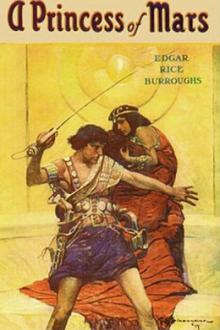Genre - Adventure. You are on the page - 47

however, that this thought did not occur to me until the following day removes any possible right to a claim to heroism to which the narration of this episode might possibly otherwise entitle me.I do not believe that I am made of the stuff which constitutes heroes, because, in all of the hundreds of instances that my voluntary acts have placed me face to face with death, I cannot recall a single one where any alternative step to that I took occurred to me until many hours later. My mind is

s originally conceived,Verne's Captain Nemo was a Polish nobleman whose entire familyhad been slaughtered by Russian troops. Nemo builds a fabulousfuturistic submarine, the Nautilus, then conducts an underwatercampaign of vengeance against his imperialist oppressor.But in the 1860s France had to treat the Tsar as an ally,and Verne's publisher Pierre Hetzel pronounced the book unprintable.Verne reworked its political content, devising new nationalities forNemo and his great enemy--information

and sat down to the Pall Mall at twenty minutes before six. Half an hour later several members of the Reform came in and drew up to the fireplace, where a coal fire was steadily burning. They were Mr. Fogg's usual partners at whist: Andrew Stuart, an engineer; John Sullivan and Samuel Fallentin, bankers; Thomas Flanagan, a brewer; and Gauthier Ralph, one of the Directors of the Bank of England-- all rich and highly respectable personages, even in a club which comprises the princes of English

person who stayed in our house whom we called the captain."Well," said he, "my mate Bill would be called the captain, as like as not. He has a cut on one cheek and a mighty pleasant way with him, particularly in drink, has my mate Bill. We'll put it, for argument like, that your captain has a cut on one cheek--and we'll put it, if you like, that that cheek's the right one. Ah, well! I told you. Now, is my mate Bill in this here house?" I told him he was out walking.

/p> "That poor devil who escaped from Dartmoor five days ago." Dick smiled. "Is that your news?" "Yes." "There have been several escapes lately." "But they've all been caught in no time; this chap ain't, and by gum, lad, if he come'd my way I'd help him out. I don't believe they'll get him; at least I hopes not." "They'll have him right enough," said Dick. "A convict at large is a danger to all on the moor." "This one

same day another important personage fell into the hands of the Southerners. This was no other than Gideon Spilen, a reporter for the New York Herald, who had been ordered to follow the changes of the war in the midst of the Northern armies.Gideon Spilett was one of that race of indomitable English or American chroniclers, like Stanley and others, who stop at nothing to obtain exact information, and transmit it to their journal in the shortest possible time. The newspapers of the Union, such as